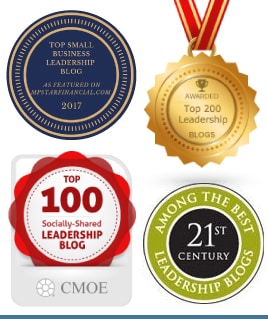There’s something about this time of year that makes people feral.
I’m talkin’ scratchy, snarly, tearful, short-tempered and generally stressed out to the max.
It’s as if we think Armageddon is going to reign down upon us on December 25, so we absolutely must get everything on the ever-increasing list done before we head off for our summer holidays.
Add to that our personal Christmas shopping, the hangovers which accompany those endless functions and the constant stream of year-end client engagements; it’s no wonder the tempers get shorter and the days become longer.
What are the consequences of this?
The main unintended outcome of this end of year ‘phenomenon’ is a breakdown in communication.
Comments are misinterpreted. There is confusion around intentions. Responses come out all wrong. Words are left unsaid. We regret what we say and how we say it.
The fact is, problems with communication happen all year round. More specifically, what is communicated, how it is delivered and the way it is received (or interpreted). The pre-holiday season just exacerbates this…when our tethered ropes are wearing perilously thin.
A breakdown in communication is at the heart of most workplace issues – and in life in general for that matter.
Today I was enjoying a coffee at my favourite local café, Kush, where I noticed a sign which accurately portrayed the importance of clarity in communication.
Angus McLeod, aka awesome coach, says in his book Performance Coaching: The Handbook for Managers, HR Professionals and Coaches; that a great way to remedy this misperception (and add to that those jagged Christmas nerves) is conscious perception.
Conscious perception is all about re-evaluating the communication we receive and challenges us to question our established realities about this information. The idea is to encourage ourselves to include new perceptions.
As well as getting us to examine the possible states of mind of the originator, conscious perception is about coming up with three possible interpretations to challenging or emotionally charged communication we receive.
1. Negative,
2. Neutral, and;
3. Positive.
Let’s say your boss leaves an uncommonly short and somewhat abrupt message on your answerphone wanting to meet next Monday.
Instead of immediately getting defensive, use the conscious perception technique.
Ask yourself…
If I was to take a negative perception of this, I might think “he’s thinking I’m not performing on that last project and I’m in big trouble.”
If I was to take a neutral perception, I could note that because he was a bit short, he was under more pressure than usual because of the upcoming Board Meeting.
If I was to take a positive perception, I might decide he is in a rush to get to another meeting, is just distracted and actually has some good news to discuss.
So, the next time you are at the receiving end of that barked response from your colleague, boss or customer, try not to immediately jump to ‘taking it personally’ and explore other possibilities.
You have a choice in your response.
You can either choose to react impulsively OR you can choose to respond mindfully, with conscious perception.
You can either escalate the situation by adding petrol to the flames or you can deflate the tension by pouring water on it.
What do you think? Do communication problems become more severe at this time of year? What techniques do you use to help prevent communication breakdown from occurring in your workplace / teams? Leave your comments below.







